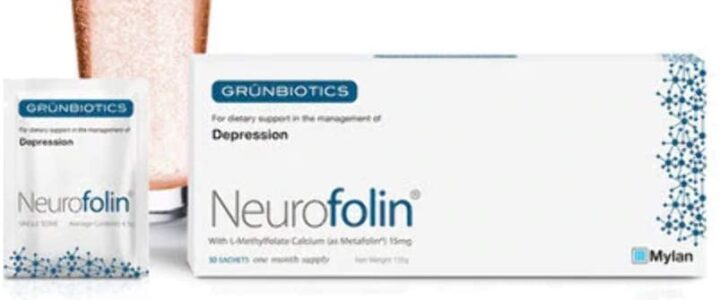Used as a remedy for occasional stage fright, beta blockers are prescribed to musicians, actors, political figures, or TV journalists in anticipation of an oral performance. These “anti-hypertensives” are intended to lower abnormally high blood pressure. They help slow down the effects of the adrenaline rush, such as sweaty hands, jitteriness, feverishness, and even paralysis.
It is not by chance that they are considered dopants in some sports. This is because by slowing the heart rate, they allow better endurance during exercise. But what are they? How do beta blockers make you feel? What are the best beta blockers for anxiety? What are their side effects and contraindications? How do you use them? We’ll try to answer these questions and more in this article.
Beta Blockers: What are they?
Beta blockers (or β-blockers) are drugs that have an action on the heart and blood vessels. They produce the following effects:
- drop in blood pressure;
- slow heart rate;
- decrease in the force of contraction of the heart
Β-blockers are conventionally used in the management of:
- heart failure;
- angina;
- anxiety;
- high blood pressure;
- myocardial infarction;
- tachycardia attacks
Note: These drugs are sometimes used in the treatment of the so-called “temperament” disorders. Certain β-blockers, such as propranolol, have the property of neutralizing the neurotransmitters responsible for memorizing emotions, both for pain and joy.
There are two main groups of beta blockers:
- those which act primarily on the “beta” receptors of our heart, the “cardio-selective”;
- those which act on all of the “beta” receptors in our body, more commonly used in the treatment of stress and anxiety.
These can, therefore, reduce, or erase certain traumatic emotions and be prescribed in the event of stress.
Benefits of Beta Blockers for Anxiety
When the body is under stress, it produces adrenaline and norepinephrine, which are responsible for unpleasant manifestations such as:
- paralyzing stage fright;
- tremors;
- a high heart rate or a symptom of a “fast-beating heart.”
Taking a beta blocker tablet acts on the secretion of the norepinephrine hormone and helps slow the heartbeat.
When they are prescribed to help fight against stress and anxiety, beta blockers are often prescribed at a low dosage. This has the advantage of reducing the probability of seeing the side effects.
What are the safest Beta Blockers for Anxiety?
According to Mayo Clinic, some of the most used beta blockers include Acebutolol, Atenolol, Bisoprolol, Carvedilol, Labetalol, Metoprolol, Nadolol, Pindolol, Propranolol, and Timolol. These are considered safe to some extent, and when specific prescriptive instructions are followed.
Is Propranolol good for Anxiety?
One of the most common and safest beta blockers for anxiety is propranolol, also prescribed under the name Avlocardyl. Propanolol, a beta-blocker usually prescribed to lower blood pressure, is the ultimate anti-jitters! However, it has contraindications. It is not recommended in cases of asthma or slow heartbeat. It is, therefore, better to “test” it a few days before to make sure that it does not cause any side effects. On the day of the exam or public performance, user must take a tablet one hour before the start of the exams or stage appearance.
However, there have been reports of patients having symptoms of anxiety when taking or after withdrawing from beta blockers. But can propranolol make anxiety worse? No studies are suggesting that propranolol worsens anxiety, even after withdrawal. But you may want to talk to your doctor as soon as possible if you experience this.
Does Propranolol make you feel calm?
Propranolol is used for sedation (calming). It can help you control temper and other behavioral problems. But it only suppresses manifestations of anxiety, palpitations, and tremor by blocking the action of adrenaline.
Since beta blockers like propranolol are said to act as a sedative, this has always prompted the question: do beta blockers help you sleep? According to a study published by AARP, beta blockers can help you fall asleep sooner, have a more restful night, and sleep longer. But know that beta blockers can make you feel dizzy, according to the NHS, and this is often seen as a side effect.
How long can you stay on Beta Blockers?
Beta blockers like propranolol are generally safe for long time use, according to the NHS. In fact, beta blockers for anxiety, migraines, or heart conditions work best when taken on the long term. For anxiety, it doesn’t tend to have long-lasting side effects which are harmful when you take them for months or even years.
Taking Beta Blockers for Anxiety: Warning, Side Effects, and Contraindications
You should NEVER practice self-medication by taking a beta blocker yourself. Do not offer it to a friend in anticipation of a stressful situation (exam, competition, job interview, strained relationships, etc.). In a number of cases, taking a beta blocker requires strict precautions.
Beta blockers have lots of benefits for those suffering panic attacks. But what are their most common side effects? The most common side effects of beta blockers as found in patients are:
- asthma;
- nausea;
- vomiting;
- certain heart failure;
- atrioventricular blocks;
- bradycardias less than 40 or 50 per minute;
- pheochromocytoma;
- hypotension;
- Raynaud’s disease.
- certain hepatic insufficiencies;
Can you get addicted to Beta Blockers?
Beta blockers are not addictive. Rather, they are non-narcotic sedation drugs that are used to decrease anxiety symptoms in patients.
Contraindications
According to the Healthline, Beta blockers for anxiety are contraindicated for patients with asthma, AV block, symptomatic bradycardia, low blood pressure, and decompensated heart failure. Also, beta blockers must be initiated and withdrawn gradually, especially in patients with rebound tachycardia, hypertension, etc.
What medications should not be taken with Beta Blockers?
Some medicines or substances which should not be taken with beta blockers for anxiety or other health problems, according to the WebMD, include:
- cold medicines;
- antacids with aluminum content;
- antihistamines;
- caffeine;
- alcohol
Conclusively, beta blockers are very useful in managing anxiety. However, like every sedative, beta blockers for anxiety have side effects and contraindications. They should only be used under prescription and strict adherence to doctor’s dosage instructions. Also, before taking any beta blocker, the doctor should make sure that the heart rate has not dropped too low. For this, it is advisable to carry out an electrocardiogram.




